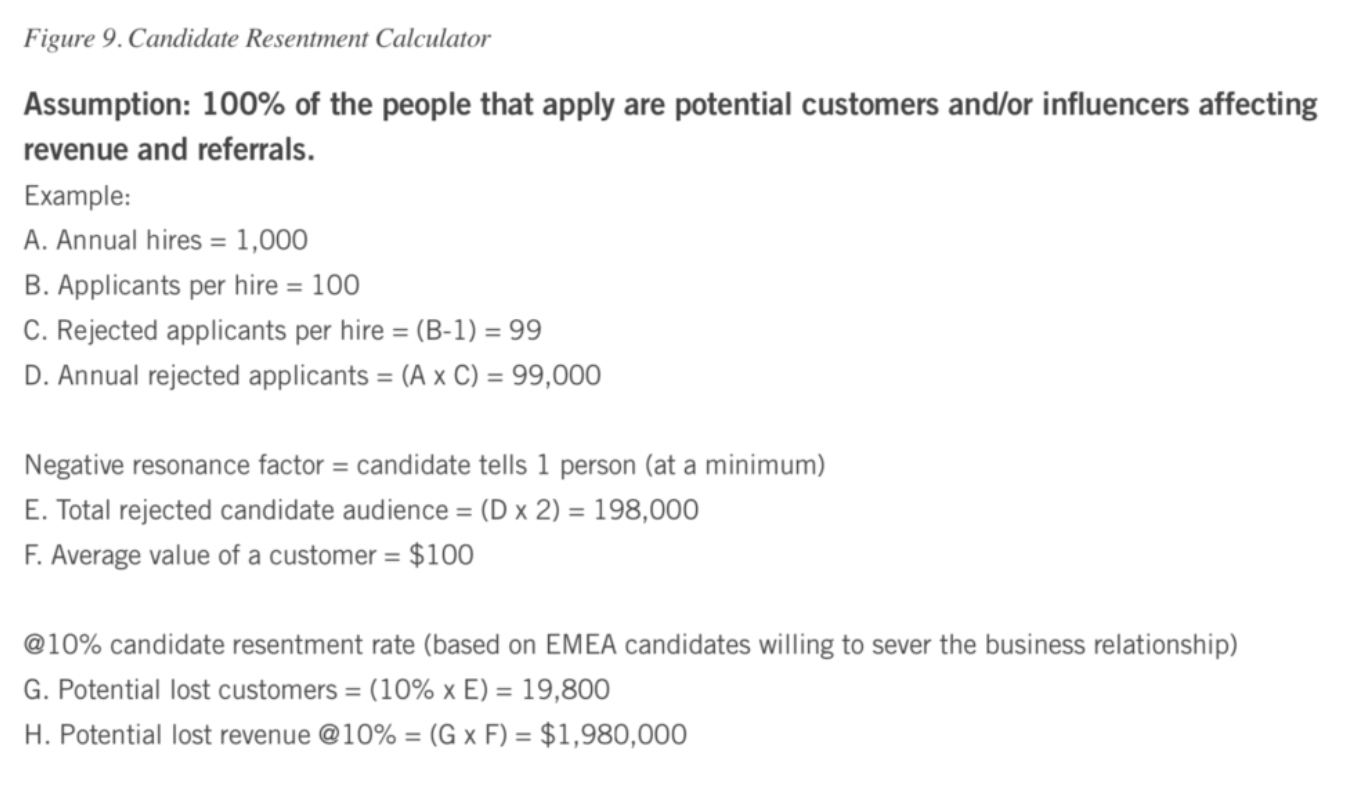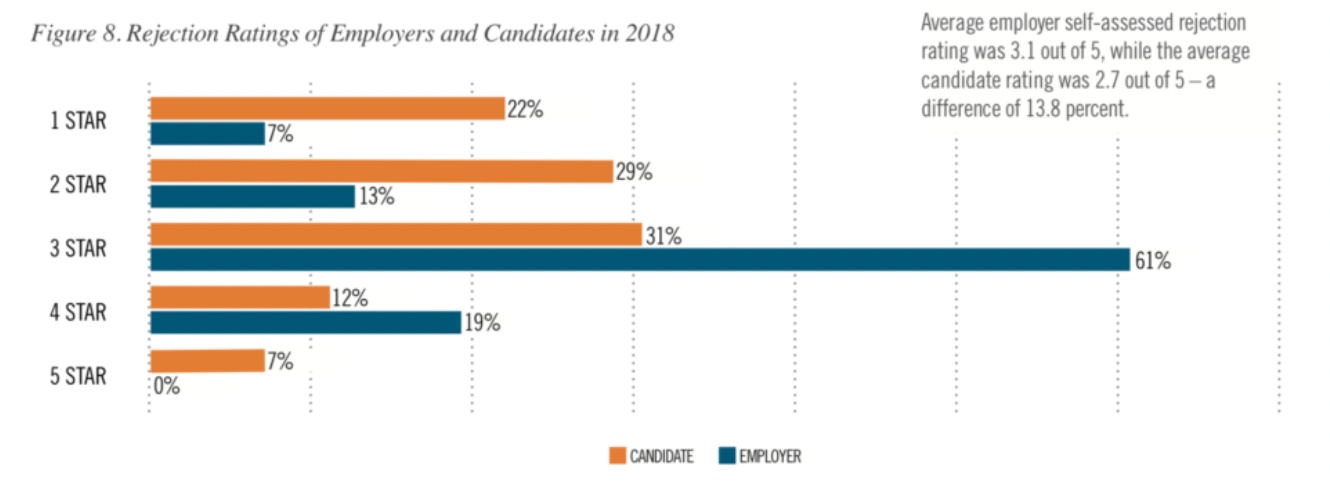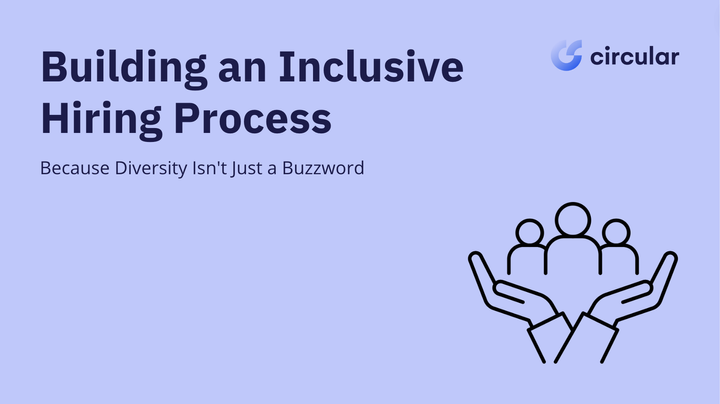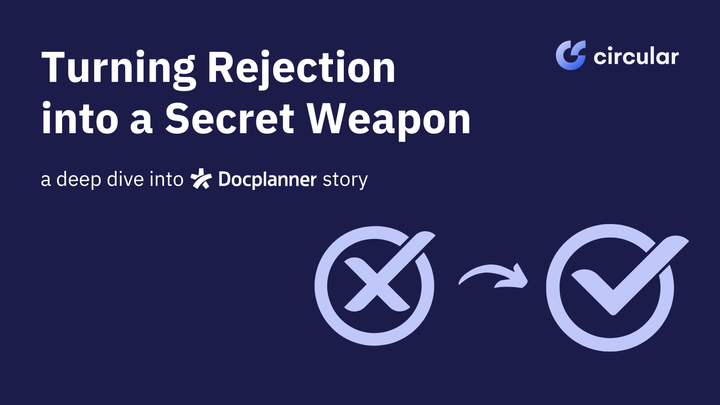Candidate Rejection and the Candidate Experience

Rejecting candidates can be a tough task. Many doubts come to mind: how should I tell a candidate that I’ve decided not to hire them? Will I have the time to tell them all that we are no longer going to consider them, and if I don’t, what will the long-term implications be?
The Impact of Providing a Poor Candidate Experience
A poor candidate experience can turn into a noteworthy revenue lost. Rejecting candidates on the way, therefore customers for B2C corporations, with a negative impression about the company can cost millions of euros to any business.
As we already explained in our previous post “What is Candidate Experience?”, let’s imagine that a company hires 1,000 applicants per year. This means that if 100 applicants apply for one position, there will be about 99,000 rejected applicants per year. Assuming that the rejected candidate shares their experience with at least one other person, the total rejected candidate experience audience doubles to 198,000 people. This will really vary depending on each company’s product or service, but let’s say that the average amount each consumer spends with the company is €100 per year. Thus, the company that provides a poor candidate experience could then potentially lose 1.98 million euros annually.

Source: The Candidate Resentment Calculator, The Talent Board
So, contrary to popular belief, there is room for improvement in candidate experience when a company decides to no longer consider a candidate in a hiring process.
“Recruitment is the HR function with the highest impact on revenue generation and profit margins.”
The P&L Impact of Candidate Experience by Antonio Arias-Lopez (BCG, 2012)
Candidate Experience after the Interview
The recruitment process in today’s business world has to lead to two main outcomes: to recruit quality candidates while also ensuring a positive candidate experience (The P&L Impact of Candidate Experience by Antonio Arias-Lopez, Miles and McCamey, 2018).
During the hiring process, recruiters meet many candidates that either don’t meet some of the job requirements or aren’t a good fit for the company’s culture. Any person that invests time and energy in a hiring process deserves to be informed about the recruiter’s decision. The sooner, the better. Candidates who receive a late notification or who, unfortunately, never receive it, will have a poor candidate experience. Don’t make them feel like they are wasting their time with you.
- Share the decision process timeline with candidates. Companies like Amazon inform candidates about the interview and decision processes on their career site. “We strive to get back to you within two business days after your phone interview. If you haven’t heard from us, feel free to give us a nudge.”
- Inform finalist candidates if the decision making gets delayed. It may happen that you have two or three amazing candidates in front of you who each stand out in different ways. Well, lucky you, you managed to get 3 brilliant candidates to the hiring decision stage. You will probably need to review your notes and share opinions with the hiring manager or the person responsible for the role. This may take some time, depending on the other managers’ availability. In the meantime, you can keep the candidates informed about the process. Try to be transparent about how long the decision is going to take and try to keep in touch with them. Convey interest. It is very important that despite the delay in the decision, they feel valued. This will sometimes help you stay up to date on whether they are still interested in the role or if they are considering accepting a role at a different company. Hurry. You always run the risk of losing someone who is a perfect fit when you take too long to share your hiring decision.
Candidate Experience when Communicating a Rejection
Once the decision has been taken internally, it’s time to share the news with the candidates. In this article, we are going to focus on rejection and the right way to communicate it. How the talent acquisition manager or hiring manager chooses to communicate rejection will make a big difference in whether or not the candidates apply again or refer others.
According to TalentBoard data, recruiters choose between the following methods: automated email replies (56.4 percent), personal emails from recruiters and hiring managers (23.9 percent), and personal phone calls from recruiters and hiring managers (only 5.9 percent). Positive candidate experience ratings jump upwards of 22 percent when they receive a phone call versus an automated email rejection, a difference that can go a long way.

To ensure a positive candidate experience at this difficult stage:
- Give feedback. Find a minute to make a personal call explaining the reasons why they are no longer going to be considered. Feedback is key. Candidates value transparency and customized feedback. “Sorry, we decided to hire a person who is more qualified and a better fit for the role” won’t be very motivating for the rejected candidate. Constructive feedback may help candidates in other hiring processes, and it will also help them prepare and fulfill requirements that were missing for future opportunities at your company.
- Encourage them to apply again and help them find another job. Share other open positions that may be suitable for them based on their qualifications, either that the company is looking to fill or that are available at other companies or on platforms you know. Wouldn’t it be nice to share the “bad” news by saying: “Even though you were not selected in this hiring process for this role, there are other open jobs that may be suitable for your skills in department A or even in department B. Here are the job descriptions. Let me know if they interest you”. Candidates who believe in your company will really appreciate this gesture.
- Ask for feedback. Candidates are not the only ones who should be keen to receive feedback, companies should ask for it too. To provide a good candidate experience at the rejection stage, it is necessary to be able to visualize all steps in your process. This way, you can see what is not working and take action to improve it. You can start measuring candidates’ experience with Circular’s free tool for Candidate NPS.
When recruiters ask for feedback from candidates, it not only helps improve the hiring process, but it also impacts the perception the candidate has of the company.

Source: Rejection Ratings of Employers and Candidates in 2018, The Talent Board
Among those who had a poor, 1-star experience in the attraction stage, 83 percent said they were not asked for feedback about the research process. For candidates who gave a 5-star rating in an application process, 46.1 percent of them said they were asked to provide feedback.
Unfortunately, it’s not always possible to refer the candidate to other job positions within the company. Sometimes the candidate doesn’t fulfill one of the company requirements or there are simply no open positions that fit the candidate’s profile. Carlos Figueroa, Senior Talent Acquisition Specialist at DEVO, says “there are situations where no matter how many times you try, the candidate just doesn’t have the skill set or isn’t a culture fit for the organization. That’s where I think that a tool like Circular adds a massive amount of value which just didn’t exist before.”
12 Reasons to Refer that Will Improve Candidate Experience
See how referring candidates can remove some of the obstacles to providing a positive candidate experience that we’ve covered in this blog post.
1. Reputation & Lost Customers
As we mentioned, if a candidate has a poor candidate experience, most probably he will stop being a customer. On the contrary a positive candidate experience will most probably turn candidates into loyal customers. Think of your organization’s reputation and lost customers before communicating a rejection. Referring candidates to other job openings within your organization or those available on other platforms will show the candidate you care about them and they will appreciate you for that.
2. Recover Sunk Costs
Helping candidates you have spent time with finding other jobs will have a positive impact on the candidate experience. But also, by referring them, you will be helping other companies with filling their open positions. This has become a common practice with silver medalist candidates. Remember that in staffing, silver medalists are those candidates that were considered in the hiring process and ended up being the second-best candidate. By referring them to your network or via platforms like Circular, you show them that you appreciate their experience and professionalism. Also, it is an opportunity for you to build a common talent pool that you can benefit from whenever you want. This all will make up for lost time.
3. Quality
Butler University shows in their case study “Recruiting Sources and Posthire Outcomes for Job Applicants and New Hires: A Test of Two Hypotheses” that companies should prioritize informal sources when considering candidates for filling a job vacancy. “For example, Ullman suggested that employee referrals were an effective recruitment source because the friends of employees know more about the company in advance and they are almost pre-sold on it if they decide to apply.”
4. Rotation vs. Retention
According to research by Mental Health America Mind the Workplace, “70 percent stated that they were thinking about and/or actively looking for a new job.” Employees who had a positive candidate experience along the hiring process will be more motivated in the organization than those who had a poor experience. This way your retention rate will improve. Also, referrals will help you get highly qualified candidates to fill your talent pipeline quickly and efficiently.
5. Reaction
By now, you probably know that timeliness is key to candidate experience and this is something Personnel Assessment and Decisions explains very well in Timeliness is Key to the Candidate Experience. “This study examined the spillover effect of recruitment delays on signals important for organizational attraction.” So, even if you have decided to no longer consider a candidate, hurry, fast communication will determine a potential future hiring. Make the hiring process shorter and more effective by using collaborative talent pools. Get highly qualified profiles and save yourself hours of seeking out candidates that may be a good fit. Maintain your positive candidate experience by providing a fast response and a solution.
6. Personalized Experience
Personalization has become key to generate a positive candidate experience. Candidates value when recruiters have an individual behavior with them and create personalized experiences. This gains importance when rejecting the candidate: customized feedbacks and communications, and assistance to find other suitable jobs will be much appreciated. According to “6 Simple Steps to Revitalizing your Candidate Experience” by ERE Recruiting Intelligence, “Jobseekers would feel more positive about their next candidate experience if they received detailed job feedback (57 percent), had help finding another role (34 percent) and if the interviewer took an interest in their goals (28 percent)”
7. Create Fans, not Resume Dumps
Strategic recruiting is more than filling the talent pipeline. It is also about generating good relationships between the employer and the rejected applicant. Be in good spirits by referring candidates and you’ll be growing fans to your organization.
8. Referrals Create Referrals
As we mentioned at the beginning of the post, candidates with a positive candidate experience will share their impressions with their network. According to The Talent Board, 82% of the applicants who had a good experience along the application process share it with their environment, while 64% do it for bad experiences. Providing a positive candidate experience along the journey will help you fill your talent pipeline in a more effective way.
9. Show Love with Feedback
We all know by now that candidates expect to receive a transparent, personalized and dedicated feedback when they get rejected. Those who don’t receive any kind of feedback by the employer will get a bad impression about the hiring process and therefore a poor candidate experience. Referring candidates to other employers will be a nice way of showing love and appreciation to candidates.

10. Greater Impact
As far as quantity, rejected candidates are the vast majority of applicants. Up to 94% according to The Talent Board. This make vetted candidates a considerable influencer in the business revenue, way stronger than those candidates who become employees.
11. You’re Not Doing as Great as you Think
No matter the maturity, size or industry of a company, there is a disparity between the perception that the employer has about candidate experience and the one that the candidate has. The Talent Board shows that this gap represents a 13.8% and that employers tend to rate the experience higher than candidates.
12. Reject with Style
Candidates that will not be longer considered in the hiring process expect to receive a communication from the recruiter. And this is something some employers concern about: “45.5 percent of recruiters were required to respond to every candidate when rejecting and/or closing out a requisition with standard approved scripts (said 9.7 percent of recruiters in 2017, 369 percent increase..)”.
Communicating the rejection is great for candidate experience but it will have a greater impact if candidates receive a personal email: “56.5 percent of candidates received an email from Do Not Reply notifying them that they were no longer considered after the interview stage (a 2.9 average interview rating); only 23.9 percent received a personal email the recruiter or hiring manager (a 3.4 average interview rating; and only 5.9 percent received a phone call (3.6 average interview rating)” as The Talent Board stands out in its “The 2018 Talent Board North American Candidate Experience Benchmark Research Report”
Contributions
Thanks to Anna Ott for co-writing “12 Reasons to Refer that Will Improve Candidate Experience”.
Thank you Anna Ott, Antonio Arias-Lopez and The Talent Board for making this post possible.
Congratulations to Antonio Arias-Lopez on your Master’s Thesis at the Frankfurt School of Finance & Management “The P&L Impact of Candidate Experience“



